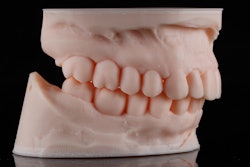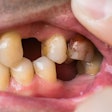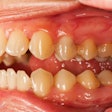Taking medications can pose challenges for many patients, not only due to the size or quantity of pills but also because of their taste. A common issue that arises is dysgeusia -- an altered taste sensation often described as bitter or metallic. This can be a significant concern for patients, affecting their comfort and compliance with medication regimens.
 Teresa Mendoza, PharmD.
Teresa Mendoza, PharmD.
Dysgeusia occurs when certain medications interact with specific taste receptors in the mouth, triggering a cascade of reactions that signal the brain to perceive bitterness.
Being aware of the medications that can cause this unpleasant taste alteration is essential in providing comprehensive patient care and helping patients manage their oral health effectively. Some of the medications known to alter taste include the following.
ADHD medications
Amphetamine/dextroamphetamine (Adderall) has been known to cause "Adderall tongue," a term that refers to its unpleasant oral side effects.
Postmarketing experiences have shown that lisdexamfetamine (Vyvanse) also causes dysgeusia.
Medications causing dry mouth, also known as xerostomia, dry the oral mucosa, which alters taste. These specific medications include:
- Antihistamines: cetirizine, loratadine
- Antidepressants: paroxetine, bupropion
- Parkinson's disease medication: carbidopa/levodopa
- Diuretics: hydrochlorothiazide, furosemide, spironolactone
Antivirals
 Dr. Lisa Chan.
Dr. Lisa Chan.
Nirmatrelvir/ritonavir (Paxlovid) is known to cause "Paxlovid mouth." It is believed that ritonavir triggers the taste buds associated with bitter taste.
Gastroesophageal reflux disease (GERD) medications
- Proton pump inhibitors: lansoprazole, omeprazole
- H2 receptor antagonists: famotidine
Likewise, a metallic taste can occur when certain medications are partially absorbed into the body and then released into the saliva, leaving behind a metallic aftertaste. Some common drugs known to cause this effect include the following:
- Antibiotics: tetracycline, metronidazole, clarithromycin, clindamycin
- Antidiabetics: Metformin is transferred into saliva by the organic cation transporter, contributing to the metallic taste.
- Gout medication: allopurinol
- Antipsychotics: lithium
- Prenatal vitamins and multivitamins: These medications contain metals such as iron, copper, and zinc which are essential for nutrition and development but can directly cause a metallic taste.
- Chemotherapy drugs: Many patients on chemotherapy report having a "chemo or metal mouth":
- Cisplatin, carboplatin, and oxaliplatin are platinum-based compounds that patients may directly taste.
- Cyclophosphamide, doxorubicin, vincristine, and 5-fluorouracil have been reported to cause a metallic taste although the exact mechanism is not fully understood.
Strategies for managing taste alteration
For some patients, the altered taste may make food or beverages inedible, leading to a decreased appetite, resulting in weight loss and nutrient deficiencies. While discontinuing the offending medication is a sure way to stop dysgeusia, there are strategies patients can do to manage this oral side effect:
- Maintain good oral hygiene. Brushing teeth regularly and using mouthwash can help reduce and mask the unpleasant taste.
- Chew mints or sugar-free gum. These can help neutralize the metallic or bitter flavors.
- Avoid metal cookware. It can prevent additional metallic flavors from being added to food, which could worsen the condition.
- Avoid smoking. The chemicals in tobacco and the smoke aerosols containing heavy metals can further affect the perception of taste.
- Consult medical providers. Patients should discuss potential alternatives with their doctors.
- Check for other conditions. If medications are not the cause, underlying issues like gum disease, tooth decay, vitamin B12 or zinc deficiency, diabetes, or infection should be investigated.
It is crucial for dental professionals to be aware of which medications can lead to dysgeusia so they can educate their patients and suggest effective solutions. Resources such as the Digital Drug Handbook can assist you in swiftly identifying these medications, enabling you to offer better care and support for your patients’ oral health.
Teresa Mendoza, PharmD, received her degree in biochemistry and a minor in Chicano/a studies from the University of California, Los Angeles. She earned her Doctor of Pharmacy degree from the University of California, San Francisco School of Pharmacy. Mendoza has held many executive positions involving service to the community and higher education advocacy. She is a contributor to MedAssent DDS as a medical/pharmaceutical communications specialist, where she leads the blog, white paper, and continuing education content.
Dr. Lisa Chan has devoted her career to promoting equity in care in both dentistry and her community. She brings over 35 years of diverse experience in dentistry to her role. Chan received her Doctor of Dental Surgery degree from the University of Southern California Herman Ostrow School of Dentistry. Her background includes significant positions such as a hospital dentist at Kaiser Permanente, a private practice dentist in Los Angeles, and a consultant for the California State Dental Board. Chan co-founded MedAssent DDS with the mission of elevating patient safety through integrated care.
The comments and observations expressed herein do not necessarily reflect the opinions of DrBicuspid.com, nor should they be construed as an endorsement or admonishment of any particular idea, vendor, or organization.



















